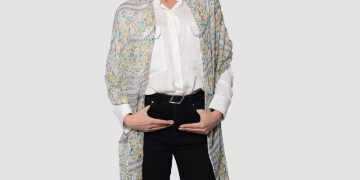Fast fashion has become synonymous with the modern fashion industry, characterized by rapid production cycles, low prices, and disposable clothing trends. With the rise of globalized supply chains and advancements in manufacturing technology, fast fashion brands churn out new styles at breakneck speed to meet consumer demand for the latest trends at affordable prices.
Negative Environmental Impact
However, behind the allure of fast fashion lies a darker reality. The industry’s reliance on cheap labor and unsustainable production practices has led to significant environmental degradation. From the excessive use of water and chemicals in textile dyeing to the emission of greenhouse gases from manufacturing and transportation, fast fashion contributes to pollution, deforestation, and climate change on a massive scale.
Exploitation of Labor
Moreover, the fast fashion model perpetuates a cycle of exploitation and injustice for garment workers, particularly in developing countries where labor regulations are lax and workers’ rights are often overlooked. Many garment factories operate in unsafe conditions with long hours, low wages, and little to no job security, putting the lives and well-being of workers at risk in pursuit of profits.
Social and Cultural Implications
The rise of fast fashion has also had profound social and cultural implications, fueling a culture of disposability and homogenization in fashion trends. With brands producing new collections at an unprecedented pace, consumers are encouraged to constantly buy and discard clothing, leading to massive amounts of textile waste and environmental harm. Additionally, fast fashion’s focus on mass-produced, cookie-cutter styles has led to the erosion of cultural diversity and individual expression in fashion.
Rise of Ethical Alternatives
In response to the negative impacts of fast fashion, there has been a growing movement towards ethical and sustainable alternatives in the fashion industry. Ethical fashion brands prioritize transparency, fair labor practices, and environmental sustainability throughout the supply chain, from sourcing materials to manufacturing and distribution. These brands aim to create clothing that is not only stylish but also socially and environmentally responsible.
Benefits of Ethical Fashion
Ethical fashion offers numerous benefits compared to its fast fashion counterpart. By using eco-friendly materials, implementing fair labor practices, and supporting local communities, ethical fashion brands help reduce their carbon footprint and promote social justice. Additionally, ethical fashion encourages consumers to adopt a more mindful approach to clothing consumption, emphasizing quality over quantity and longevity over trendiness.
Consumer Awareness and Education
However, the success of ethical fashion relies heavily on consumer awareness and education. Many consumers are unaware of the environmental and social impacts of their clothing choices or simply prioritize price and convenience over ethical considerations. Therefore, raising awareness about the importance of ethical fashion and providing resources for learning and advocacy are crucial steps in promoting positive change in the industry.
Challenges and Opportunities
Despite the growth of ethical fashion, the industry still faces significant challenges, including scalability, affordability, and accessibility. Many ethical fashion brands struggle to compete with fast fashion giants in terms of price and marketing reach. However, these challenges also present opportunities for innovation and collaboration, as ethical fashion brands explore new business models, partnerships, and technologies to overcome obstacles and reach a wider audience.
Government Regulations and Policies
Government regulations and policies also play a critical role in shaping the fashion industry’s practices and standards. Stronger labor laws, environmental regulations, and enforcement mechanisms are needed to hold fashion companies accountable for their social and environmental impact. Additionally, governments can support ethical fashion initiatives through incentives, subsidies, and public procurement policies that prioritize sustainability and social responsibility.
Corporate Responsibility
Corporate responsibility is another key factor in driving change within the fashion industry. Fashion companies have a moral obligation to prioritize sustainability and social responsibility in their operations and supply chains. By adopting transparent reporting practices, investing in sustainable technologies, and engaging with stakeholders, fashion companies can demonstrate their commitment to ethical practices and earn the trust and loyalty of consumers.
The Role of Technology
Technology plays a crucial role in advancing sustainability and transparency in the fashion industry. Innovations in materials science, supply chain management, and consumer engagement are helping fashion companies reduce their environmental footprint and improve traceability and accountability. From blockchain technology to virtual reality fitting rooms, technology offers promising solutions for addressing the challenges of fast fashion and promoting ethical alternatives.
Global Perspective
Taking a global perspective is essential for understanding the full impact of fast fashion and the importance of ethical alternatives. Developing countries, where much of the world’s clothing is produced, bear the brunt of fast fashion’s negative consequences, from environmental pollution to labor exploitation. However, these countries also offer opportunities for collaboration and partnership in promoting sustainable development and fair trade practices.
The Power of Consumer Choice
Ultimately, the power to drive change lies in the hands of consumers. By voting with their wallets and supporting ethical fashion brands, consumers can send a powerful message to the fashion industry that sustainability and social responsibility are non-negotiable. Whether it’s choosing clothing made from organic cotton, supporting fair trade initiatives, or embracing slow fashion principles, every purchase has the potential to make a difference.
Conclusion
In conclusion, the impact of fast fashion on the environment, labor rights, and cultural diversity is undeniable. However, by embracing ethical alternatives and advocating for positive change, we can build a fashion industry that is both stylish and sustainable. Whether you’re a fashion enthusiast, a conscious consumer, or a concerned citizen, you have the power to shape the future of fashion and create a world where ethical practices are the norm, not the exception.

FAQs:
- How can I support ethical fashion on a budget?
Look for affordable ethical fashion brands, shop secondhand or vintage, and prioritize quality over quantity to make your wardrobe more sustainable without breaking the bank.
- Are there any certifications or labels I should look for when shopping for ethical fashion?
Yes, certifications such as Fair Trade Certified, GOTS (Global Organic Textile Standard), and B Corp indicate that brands adhere to ethical and sustainable practices.
- What are some ways I can reduce my environmental footprint when it comes to clothing?
Consider renting clothing for special occasions, repairing and repurposing old garments, and donating or recycling clothing you no longer wear to minimize textile waste.
- How can I stay informed about ethical fashion and industry developments?
Follow ethical fashion blogs and influencers, join online communities and forums, and support organizations and initiatives that promote sustainability and social responsibility in the fashion industry.
- What can I do to advocate for change in the fashion industry?
Use your voice to raise awareness about the impact of fast fashion, support campaigns and petitions calling for industry reform, and engage with brands and policymakers to demand greater transparency and accountability.




